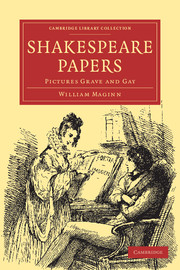Summary
“As he passed through the fields, and saw the animals around him,— ‘Ye,’ said he, ‘are happy, and need not envy me that walk thus among you burthened with myself; nor do I, ye gentle beings, envy your felicity, for it is not the felicity of man. I have many distresses from which ye are free; I fear pain when I do not feel it; I sometimes shrink at evils recollected, and sometimes start at evils anticipated. Surely the equity of Providence has balanced peculiar sufferings with peculiar enjoyments.’
“With observations like these the prince amused himself as he returned, uttering them with a plaintive voice, yet with a look that discovered him to feel some complacence in his own perspicacity, and to receive some solace of the miseries of life from consciousness of the delicacy with which he felt, and the eloquence with which he bewailed them.”
—Rasselas, chap. ii.This remark of Dr. Johnson on the consolation derived by his hero from the eloquence with which he gave vent to his complaints is perfectly just? but just only in such cases as those of Rasselas. The misery that can be expressed in flowing periods cannot be of more importance than that experienced by the Abyssinian prince enclosed in the Happy Valley. His greatest calamity was no more than that he could not leave a place in which all the luxuries of life were at his command.
- Type
- Chapter
- Information
- Shakespeare PapersPictures Grave and Gay, pp. 64 - 92Publisher: Cambridge University PressPrint publication year: 2009First published in: 1859



